Links to external sources may no longer work as intended. The content may not represent the latest thinking in this area or the Society’s current position on the topic.
Scientific priorities for realising a circular economy
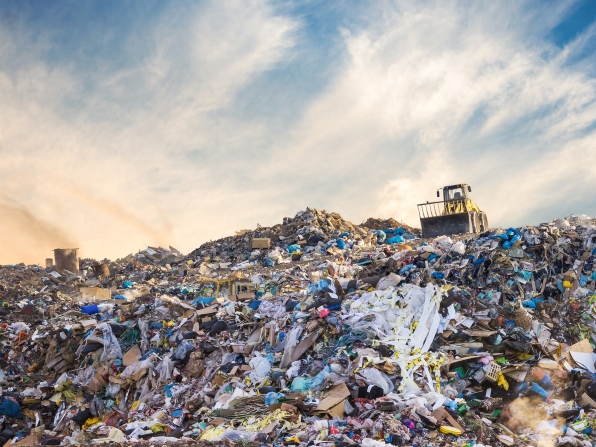
Satellite meeting organised by Professor Matthew Davidson, Professor Richard Catlow FRS, Professor Adrian Mulholland and Professor Graham Hutchings CBE FRS.
Building on the topics of the Discussion meeting, this Satellite meeting focused on identifying specific scientific challenges and priority setting for realising a circular economy. Each session focused on a core aspect of science and was introduced by three experts leading to in-depth discussion, breakout sessions and final summary.
Schedule
Chair
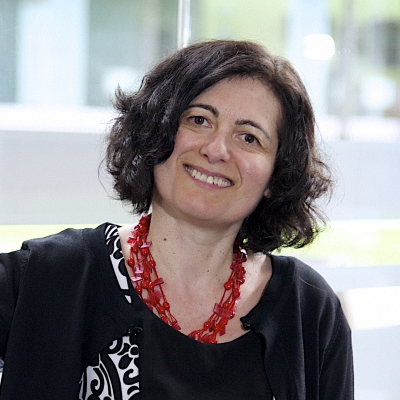
Professor Adisa Azapagic, The University of Manchester, UK

Professor Adisa Azapagic, The University of Manchester, UK
Adisa Azapagic is Professor of Sustainable Chemical Engineering at the University of Manchester where she leads the Sustainable Industrial Systems group. The main aim of her research is to help identify sustainable solutions for industrial systems on a life cycle basis, taking into account economic, environmental and social aspects. Adisa is the founding Editor-in-Chief of Sustainable Production and Consumption and Editor-in-Chief of Process Safety and Environmental Protection, both published by Elsevier on behalf of the IChemE. She was a recipient of the IChemE Award for Outstanding Achievements in Chemical and Process Engineering and the GSK/CIA Innovation Award for masterminding the CCaLC carbon footprinting tool for industry.
| 08:00 - 08:05 |
Welcome by the Royal Society and Professor Matthew Davidson
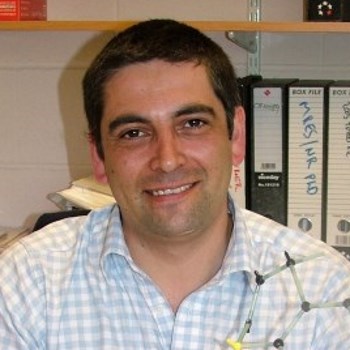
Professor Matthew Davidson, University of Bath, UK

Professor Matthew Davidson, University of Bath, UKMatthew Davidson is Whorrod Professor of Sustainable Chemical Technologies and Director of the Centre for Sustainable Chemical Technologies at the University of Bath, UK. His research focuses on the application of molecular chemistry and catalysis to sustainable chemical processes such as manufacture of renewable fuels, chemicals and plastics. He graduated in Chemistry from the University of Wales, Swansea and received a PhD from the University of Cambridge. Following a Research Fellowship at St John’s College, Cambridge, he held Lectureships in Chemistry at the University of Cambridge and Durham University before being appointed to a Chair of Chemistry at Bath in 1999. He is a Fellow of the Royal Society of Chemistry and a previous recipient of its Harrison Memorial Prize. |
|---|---|
| 08:05 - 08:45 |
Short talks

Dr Jason Leadbitter, INOVYN, UK

Dr Jason Leadbitter, INOVYN, UKJason has approximately 30 years’ experience working within the PVC industry, his current role is Sustainability and Corporate Social Responsibility Manager with INOVYN. He has an active European role in a number of Trade Associations especially on environmental and circular economy issues. He is the current Chairman of the Controlled-Loop Recycling Committee of VinylPlus – the European PVC industry’s voluntary commitment and has recently been appointed Chair of the BPF’s Sustainability Committee.
He received an Honours Degree in Materials Science and a PhD in Polymer Chemistry (Bradford University) as well as an Advanced Diploma in Sustainability from the University of Cambridge. He is an International Speaker and Honorary Lecturer at several European Universities and Business Schools and is passionate about the importance of teaching science in student education. In 2013 he was awarded a gold medal from the BPF for services to the industry. He is also a Chartered Environmentalist. 
Dr Richard MacCowan, Biomimicry, UK

Dr Richard MacCowan, Biomimicry, UKWhat role does biomimicry play in the circular system? Out of the myriad of the definitions of the circular economy, looking to natural functions, processes and systems are one of the critical ways of achieving this industrial economic model. This will highlight how we can 'look to nature' for a myriad of solutions that solves problems by focusing on the novel use of materials across differing scales. Unlike our current means of making and creating using vast amounts of energy and excessive use of materials. This will highlight how specific industries have innovated, and future trends whereby biomimetic solutions can help us achieve the maximum impact as part of the circular system. Richard James MacCowan is the co-founder and Managing Director of Biomimicry UK. Following a background in the property sector, both in consultancy and design, he pursued his passion for the natural and innovation. He is an engaging public speaker having run workshops and given talks at TEDx, SuperYacht Design Week, Foster & Partners and the Royal College of Art. Richard is a mentor and city organiser for the Circular Economy Club and a partner in the startup Smart Stable Limited, focusing on healthcare applications for the equine industry. He is based in York with his wife and two young children who enjoy exploring the outside world. Note - he cannot ride a horse! 
Professor Stefanie Hellweg, ETH Zurich, Switzerland

Professor Stefanie Hellweg, ETH Zurich, SwitzerlandThe role of chemicals in the circular economy The concept of a circular economy is receiving increased attention. Methods such as material flow analysis, risk assessment and life cycle assessment can provide quantitative information about which circular economy solutions are environmentally sustainable. In the presentation, the role of chemicals in the circular economy will be discussed, using these methods in various case studies. Chemicals can directly become waste after use. For example, used solvents represent the largest chemical waste streams by mass, and they can be valorized through material recycling or energy recovery. Materials such as plastics may contain large amounts of chemical additives, depending on the application. These may lead to unintended human and ecosystem exposure, if additives are hazardous and recycled into products where their original function is not needed. It is often unclear which chemical additives are contained in products, resulting in challenges to maintain the quality of recycled plastics and ensure non-toxicity. Finally, even small amounts of chemicals can inhibit value retention of large mass flows of other materials. One example is hazardous flame retardants in insulation materials, which make recycling legally impossible. Chemicals therefore play a key role in the transition to a sustainable circular economy, which goes beyond the chemical sector and affects many other material streams. Environmental assessment methods can inform decisions about the optimal use of chemicals, but their application is limited by a lack of data on the chemical composition of materials Stefanie Hellweg is full professor for ecological systems design at the Institute of Environmental Engineering of ETH Zurich (Switzerland), where she is leading a group of 15 PhD students and PostDocs. In her research she strives to develop cutting-edge decision support methods for sustainable production and consumption. This includes work in the field of sustainable circular economy. Between 2004 and 2005 she was a visiting scientist at Lawrence Berkeley National Laboratory and in 2014 at Yale University. She is a member of the Swiss National Research Council and the UN environment International Resource Panel. |
| 08:45 - 09:30 |
Discussion
Discussion led by chair and speakers to identify key points/breakout groups 
Professor Adisa Azapagic, The University of Manchester, UK

Professor Adisa Azapagic, The University of Manchester, UKAdisa Azapagic is Professor of Sustainable Chemical Engineering at the University of Manchester where she leads the Sustainable Industrial Systems group. The main aim of her research is to help identify sustainable solutions for industrial systems on a life cycle basis, taking into account economic, environmental and social aspects. Adisa is the founding Editor-in-Chief of Sustainable Production and Consumption and Editor-in-Chief of Process Safety and Environmental Protection, both published by Elsevier on behalf of the IChemE. She was a recipient of the IChemE Award for Outstanding Achievements in Chemical and Process Engineering and the GSK/CIA Innovation Award for masterminding the CCaLC carbon footprinting tool for industry. |
| 09:30 - 10:00 | Coffee |
| 10:00 - 11:30 | Breakout groups and synthesis |
Chair
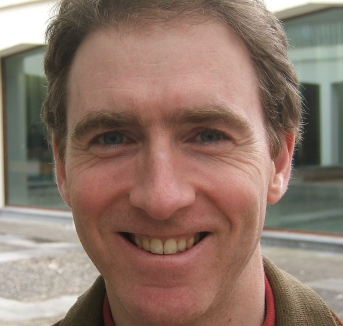
Professor Adrian Mulholland, University of Bristol, UK

Professor Adrian Mulholland, University of Bristol, UK
Adrian Mulholland’s research focuses on the investigation of mechanisms of biological catalysis, and biomolecular structure and function more generally, by computational modelling and simulation. His work has ranged from studies of drug resistance, including antimicrobial resistance, to biosynthesis, synthetic biology, enzyme engineering and thermoadaptation, to investigations of quantum tunnelling and protein dynamics in enzyme catalysis. A central theme in his research is the development and application of combined quantum mechanics/molecular mechanics (QM/MM) techniques, in particular for the investigation of enzyme-catalysed reaction mechanisms. He has a strong interest in the application of high performance computing (HPC), particularly for biomolecular simulations. Following work at ICI Pharmaceuticals, he obtained his D. Phil. with Prof. Graham Richards at Oxford, and then worked as a Wellcome Trust Fellow with Prof. Martin Karplus at Harvard. He is Head of Physical and Theoretical Chemistry at Bristol. He is Chair of CCP-BioSim (the UK Collaborative Computational Project for Biomolecular Simulation, ccpbiosim.ac.uk) and HECBioSim (the UK High End Computing Consortium for Biomolecular Simulation, hecbiosim.ac.uk), and of the UK CCP Steering Panel (see ccp.ac.uk).
| 12:30 - 15:45 |
Short talks

Dr Barbara Montanari, Science and Technology Facilities Council, UK

Dr Barbara Montanari, Science and Technology Facilities Council, UKDr Barbara Montanari is Head of the Computational Science and Engineering Division in the STFC Scientific Computing Department (www.scd.stfc.ac.uk) and Director of the Computational Science Centre for Research Communities (CoSeC: www.scd.stfc.ac.uk/Pages/CoSeC.aspx). She has 20+ years’ experience in computational materials science research. She leads a division of approximately 70 scientists who deliver software tools and expertise across the physical and life sciences for the benefit of research across academia and industry. The software and expertise span a wide range of time and length scales - from quantum processes at the atomic level, to macroscopic phenomena at the human scale. 
Dr Rachel Munday, AstraZeneca, UK

Dr Rachel Munday, AstraZeneca, UKRachel Munday works within the AZ Catalysis Hub at AstraZeneca specialising in the application of chemical catalysis to large scale pharmaceutical manufacture. She is the lead for asymmetric, pressure and redox catalysis using high throughput experimentation to develop more sustainable catalytic processes for commercial manufacture and is involved in collaborations in virtual screening, flow chemistry and new catalyst design. She graduated from the University of Sheffield with an MChem in Chemistry (2001) and received a PhD from the University of Nottingham working with Professor Jim Anderson (2005). She carried out postdoctoral research with Professor Stephen Buchwald at MIT before moving to AstraZeneca as a Process Chemist within Chemical Development in 2007.

Dr Jonathan Moseley, CatSci Ltd

Dr Jonathan Moseley, CatSci LtdThis talk will discuss potential areas within industrial catalysis and development for which digitisation might usefully contribute towards the circular economy. The context will favour homogeneous and bio-catalysis more than heterogeneous catalysis, but will focus upon pragmatic industry needs and opportunities. Examples will be given where possible. Dr Jonathan Moseley is the Technical Director at CatSci Ltd, an SME CRO which delivers expertise in the development, optimisation and understanding of scale-up processes, including catalytic reactions, across the chemical research, development and manufacturing sectors. He began his career as a medicinal chemist at Merck Sharp and Dohme for three years both before and after a PhD at Cambridge, before moving to Zeneca (now AstraZeneca) as a process development chemist. During this time he worked on pharmaceutical projects in all stages of development from early route selection, large-scale lab and pilot plant scale-up, through to established manufacturing processes, a trend which has continued at CatSci. Since forming CatSci with colleagues in 2011, the scope of his work has broadened into other sectors of the chemical industry. |
|---|---|
| 13:15 - 14:00 |
Discussion
Discussion led by chair and speakers to identify key points/breakout groups 
Dr Kirsty Salmon, BP

Dr Kirsty Salmon, BPKirsty Salmon is the Leader of BP’s Bioscience Center of Excellence (BSC) and the Scientific Director of the Energy Biosciences Institute (EBI) consisting of the University of California Berkeley, the University of Illinois Urbana Champaign (UIUC), and Lawrence Berkeley National Laboratory.
Kirsty completed both her undergraduate (BSc Honours) and Masters (MSc) degrees in Biology from Brock University in St. Catharine’s, Ontario, Canada. In 1999, she graduated with her PhD in Microbiology and Immunology from McGill University in Montréal, Québec, Canada. Following her graduate studies, Kirsty completed her postdoctoral work at UCLA in Los Angeles in the laboratory of Dr Robert Gunsalus studying archaeal methanogenesis and aerobic/anaerobic gene regulation in E. coli.
Kirsty joined UC Irvine in 2004 as a Project Scientist and ran the Computational Biology Research Lab in addition to teaching Senior Microbiology. In 2007, Kirsty received a $2M UC Discovery research grant to study optimized heterologous pathways for ethanol production. As part of this effort, Kirsty joined a young start-up company, CODA Genomics, as its Director of Scientific Projects. In early 2009, CODA Genomics transitioned to Verdezyne, Inc. and Kirsty became its Director for Renewable Fuels.
Kirsty joined BP in late 2011 as its Head of Research for its generation 2 (GEN2) lignocellulosic (LC) biofuels program. Her group was responsible for developing the microorganisms and enzyme cocktail for the LC process including the fungal and yeast strains. In early 2015, Kirsty became the leader of the newly formed BSC in San Diego, as part of BP Group Technology and Group Research. The remit of the BSC is to enable biology and biotechnology for various businesses across BP. The platform for the group covers a wide range of areas from biosouring and microbially influenced corrosion (MIC) to renewable fuels and chemicals. |
| 14:00 - 14:30 | Tea |
| 14:30 - 15:45 | Breakout groups and synthesis |
Chair
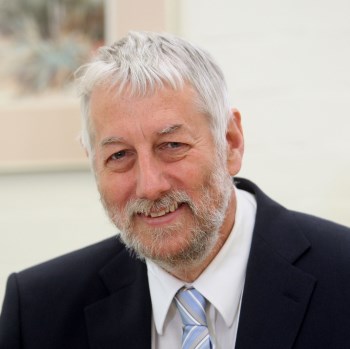
Professor Graham Hutchings CBE FRS, Cardiff University, UK

Professor Graham Hutchings CBE FRS, Cardiff University, UK
Graham Hutchings, born 1951, studied chemistry at University College London. His early career was with ICI and AECI Ltd where he became interested in heterogeneous catalysis initially with oxides and subsequently with gold catalysis. In 1984 he moved to academia and has held chairs at the Universities of Witwatersrand, Liverpool and Cardiff and currently he is Director of the Cardiff Catalysis Institute. He was elected a Fellow of the Royal Society in 2009, and he was awarded the Davy Medal of the Royal Society in 2013.
| 08:00 - 08:45 |
Short talks

Professor Elaine O'Reilly, University College Dublin, Ireland

Professor Elaine O'Reilly, University College Dublin, IrelandDesign and evolution of protein catalysts - where to start For more than a century, the complexity and synthetic potential of enzymes have fascinated chemists and biologists alike and provided enormous opportunity for discovery and creative endeavour. These natural catalysts have inspired the design of numerous homogeneous and heterogeneous catalysts, which seek to emulate the exquisite activity and selectivity achieved with enzymes. Despite their unrivalled selectivity and activity towards their native substrates or close analogues, enzymes isolated from natural sources tend to have a relatively narrow substrate scope, can suffer from poor stability and are often unable to carry out the chemical transformations of interest. Enzyme engineering has succeeded in delivering artificial enzymes with enhanced properties and even those with new catalytic function. Directed evolution in particular has had an enormous part to play in the development of new biocatalysts and its impact has recently been recognised with the award of the Nobel Prize in Chemistry. Efforts have also focused on computationally designed enzymes with idealised active site pockets. This talk will highlight existing strategies for enzyme discovery, design and development. As early career researchers seek to make an impact in this field and carve out their own research areas, what strategies for enzyme design/discovery represent the most promising approaches for delivering novel catalysts for a wide range of chemical transformations? Elaine O'Reilly was born in Dublin, Ireland in 1982. She graduated from University College Dublin (UCD) with a Bsc (Hons) in Chemistry (2006) and began a PhD in organic chemistry at UCD with Dr Francesca Paradisi. In 2010, she moved to the University of Manchester where she spent four years working as a Postdoctoral Research Fellow under the direction of Professor Nicholas J. Turner. In 2014, she joined Manchester Metropolitan University as a Lecturer in Chemical Biology before moving to the University of Nottingham in 2015, first as Assistant Professor of Chemical Biology the as Associate Professor. In 2019, she moved to University College Dublin as Associate Professor of Chemical Biology. Her research focuses on the development and application of biocatalysts in organic chemistry. 
Dr Michael Bender, BASF, Germany

Dr Michael Bender, BASF, GermanyGeneral aspects for the development of future industrial catalytic processes are considered. The need to eliminate GHG emissions will require waste incineration to be abandoned almost completely, while avoiding alternative waste disposal in landfills at the same time. Circular economy will change the raw material basis for future chemicals production considerably by recycling used chemical products from municipal and industrial wastes. Energy-efficient processes will be in high demand to make this change happen in Europe, where renewable power is scarce compared to the current demand in our highly industrialized economies. Born and raised in Bochum in the Ruhr area, the heart of Germany’s former coal mining and steel manufacturing region. 1997 PhD in Physical Chemistry in Professor Hans-Joachim Freund’s group in Bochum. The title of his PhD thesis was “Reactions on alkali-doped oxides with corundum structure.” 1997 Lab team leader in the catalyst research department of BASF in Ludwigshafen, Germany. 2001-2007 Global product manager in the catalyst marketing department of BASF 2007-2009 Business manager for petrochemical catalysts in the BASF Catalyst Division at their headquarters in Iselin, NJ. 2009-present group leader and senior catalyst expert positions with BASF in the catalyst research department in Ludwigshafen. Current fields of research activities in BASF’s Carbon Management program, projects in the field of synthetic fuels and on aspects of Circular Economy. 
Dr Paul Collier, Johnson Matthey, UK

Dr Paul Collier, Johnson Matthey, UKDr Collier is a Research Fellow at Johnson Matthey and leads its research activities at Harwell and is also responsible for corporate analytical teams in NMR and XPS at the central research facility at Sonning Common. He has led R&D teams looking at methane activation and MOF research along with diverse projects in catalysis and zeolite research. In addition to this he has led a product development team based in the UK and USA looking at the scale-up and commercialisation to multi-tonne quantities of new catalysts. Dr Collier’s PhD was in precious metal nanocatalysis at Liverpool University and PDRA with Prof Hutchings at Cardiff University. With 16 years industrial experience and over 40 publications and patents Dr Collier has significant experience in science and technology in an applied setting. |
|---|---|
| 08:45 - 09:30 |
Discussion
Discussion led by chair and speakers to identify key points/breakout groups 
Professor Graham Hutchings CBE FRS, Cardiff University, UK

Professor Graham Hutchings CBE FRS, Cardiff University, UKGraham Hutchings, born 1951, studied chemistry at University College London. His early career was with ICI and AECI Ltd where he became interested in heterogeneous catalysis initially with oxides and subsequently with gold catalysis. In 1984 he moved to academia and has held chairs at the Universities of Witwatersrand, Liverpool and Cardiff and currently he is Director of the Cardiff Catalysis Institute. He was elected a Fellow of the Royal Society in 2009, and he was awarded the Davy Medal of the Royal Society in 2013. |
| 09:30 - 10:00 | Coffee |
| 10:00 - 11:30 | Breakout groups and synthesis |
Chair
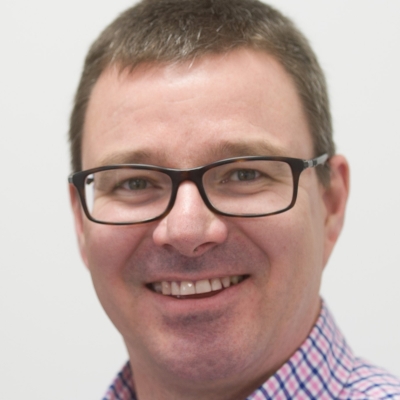
Professor David Bucknall, Heriot-Watt University, UK

Professor David Bucknall, Heriot-Watt University, UK
Professor Bucknall holds the Chair in Materials Chemistry at Heriot-Watt University (HWU). He received his PhD in polymers from Imperial College London, and was a postdoc researcher at the MPI for Polymer Research (Mainz, Germany), before taking up a position as senior scientist at the UK national neutron facility. He subsequently held academic faculty positions at Oxford University, UK, and Georgia Institute of Technology, USA before taking up his current position. His research interests are in areas associated with understanding the structure-property-processing relationship in polymers and composites. His current research includes the behavior in polymers and composites in harsh environments (including high pressure and temperature), functional adaptive materials, flexible electronics, energy harvesting, sustainable polymers and elastomer bio-recycling. He is founder and co-director of the HWU led Consortium on Plastics and Sustainability (COMPASS), which is applying multidisciplinary teams to understand and find solution to issues of the plastics circular economy.
| 12:30 - 15:45 |
Short talks

Professor Julia Stegemann, UCL, UK

Professor Julia Stegemann, UCL, UKIndustrial symbiosis in the cement industry In industrial symbiosis, waste from one enterprise becomes the resource for another, in an analogy with natural ecosystems in which organisms cycle resources for mutual benefit. For example, Portland cement is traditionally manufactured by heating limestone and clay at high temperature in a kiln. Consequently, cement production uses about 11,000,000,000 GJ of energy, is responsible for about 7% of global CO2 emissions, and consumes more than 5,000,000,000 tonnes of raw materials. Replacing both the fuels and minerals used in cement production with industrial wastes can help to conserve both fossil fuels and natural mineral resources. However, there is frequently a contrast between ideologies regarding proposals for utilisation of wastes, where some oppose utilisation of waste on principle; on the other hand, those who want to take advantage of practical benefits may be unwilling to engage with potential environmental risks. This presentation will explore some of the issues that can arise in industrial symbiosis, using waste utilisation in the cement industry as an example. Professor Julia Stegemann is Director of the Centre for Resource Efficiency & the Environment at University College London, and also Co-Director of CircEL, a UCL-wide research hub for the circular economy. Her research is on sustainable technologies and systems to enable return of wastes to the resource loop. She studies physical, chemical and biological processes of accumulation and transformation of waste, in relation to prevention, treatment and utilisation. Julia has Bachelors and Masters degrees in Chemical Engineering from McMaster University and a PhD from Imperial College London, as well as more than 30 years of research experience gained also at Oxford University, Karlsruhe Institute of Technology, and Environment Canada. 
Roberto Werneck, BRASKEM, Brazil

Roberto Werneck, BRASKEM, BrazilAn industry view of the key role of science in the quest for the circular economy The introduction of renewable polyethylene, announced in 2007, quickly positioned Braskem as a major player in a nascent bioplastics industry that was still trying to define its value proposition. Most bioplastics were then touted as biodegradable, often without a clear definition of what was meant by that attribute, an approach that left the door open for greenwashing. Braskem made what seems, in retrospect, to have been a key decision: to use only science-based arguments when talking about the renewable product attributes. Starting with an eco-efficiency study, the company went on to certify each batch with a bio-based carbon content analysis. It then made data from the process available to an external team that conducted a peer-reviewed life-cycle assessment. A label, I’m green™, was created to differentiate the material; to use it, a client must state the minimum bio-carbon content in the product. Science plays a crucial role when making decisions to minimize the social, economic, and environmental impacts. This presentation introduces science as an essential component of Braskem’s commitment to the Circular Economy, which includes supporting and taking active part in scientific research and participating in initiatives such as the Alliance to End Plastic Waste. One example is the development of new renewable materials based on disruptive scientific advances such as molecular biology and catalysis. The circular economy will benefit from a well-conceived, consistent environment of materials, processes, and policies – and science plays an important role in all these dimensions. Roberto Werneck is a Chemical Engineer with an MSc degree from the Federal University of Rio de Janeiro. He has worked in many industries such as Chemical, Petrochemical, Oil & Gas, and Mining & Metals with activities ranging from consulting to engineering design, start-up and commissioning. He teaches Process Control at the Catholic University in Rio de Janeiro. After seven years leading the Process Technologies for Renewables in Braskem, a team that develops new processes and supports the Green Ethylene plant in Brazil, Roberto is now in charge of Technology Intelligence, within the Innovation & Technology area in Braskem. 
Professor Arthur Garforth, University of Manchester, UK

Professor Arthur Garforth, University of Manchester, UKEnhanced feedstock recycling There are two major routes for the recycling of plastic waste; mechanical and feedstock. The most widespread approach to feedstock recycling is the pyrolysis (or cracking) of the plastic waste. However, this process requires high operating temperatures (typically 500°C – 900°C) with a subsequent large adiabatic temperature drop across the reactor (fixed bed or fluidised) which combined with catalyst deactivation results in significant processing issues. In addition the products are wide ranging from C1 to upwards of C50 and post pyrolysis separation/fractionation is required. A more energy neutral option to catalytic cracking of plastics is that of hydrocracking, which in the presence of a suitable catalyst not only offers the potential for the selective recovery of useful chemical fractions, but is also is tolerant of the presence of heteroatoms such as chlorine or fluorine in the plastic. The hydrocracking process offers the opportunity to produce medium chain hydrocarbons such as naphtha and diesel fuel and the use of hydrogen in the reactor minimises the generation of coking and thus extends the viable lifetime of the catalyst before regeneration is required. The work at Manchester showed it was possible to carry out the slightly exothermic reaction at much reduced temperatures (200°C–350°C) whilst maintaining production/conversion yields comparable to the cited literature values. Most importantly, the significantly shorter reaction times (typically 5 mins) now make continuous processing of polymer waste a possibility Arthur obtained his PhD at Manchester on the artificial maturation of kerogen and first worked on heterogeneous catalysis as a BP extramural researcher until 1987. This was followed by several years in the petrochemical and chemical industry sector before becoming an academic at UMIST in 1998. From 1998 to 2005 he developed 'waste' catalysts for 'waste' polymers using the highly endothermic FCC process. A shift in emphasis to more energetically favourable hydrocracking of mixed plastic waste streams resulted in a Royal Society Brian Mercer Innovation award in 2008 and two patents using zeolite catalysts to produce naphtha. Arthur also has a Royal Academy of Engineering Exxon Mobil Excellence in Teaching award also in 2008. Currently, he is a lead investigator on the Catalysis Circular Economy theme (“Keeping Platform Chemicals in Play”) and is a Reader in Chemical Engineering and a Fellow of the Royal Society of Chemistry. |
|---|---|
| 13:15 - 14:00 |
Discussion
Discussion led by chair and speakers to identify key points/breakout groups 
Professor David Bucknall, Heriot-Watt University, UK

Professor David Bucknall, Heriot-Watt University, UKProfessor Bucknall holds the Chair in Materials Chemistry at Heriot-Watt University (HWU). He received his PhD in polymers from Imperial College London, and was a postdoc researcher at the MPI for Polymer Research (Mainz, Germany), before taking up a position as senior scientist at the UK national neutron facility. He subsequently held academic faculty positions at Oxford University, UK, and Georgia Institute of Technology, USA before taking up his current position. His research interests are in areas associated with understanding the structure-property-processing relationship in polymers and composites. His current research includes the behavior in polymers and composites in harsh environments (including high pressure and temperature), functional adaptive materials, flexible electronics, energy harvesting, sustainable polymers and elastomer bio-recycling. He is founder and co-director of the HWU led Consortium on Plastics and Sustainability (COMPASS), which is applying multidisciplinary teams to understand and find solution to issues of the plastics circular economy. |
| 14:00 - 14:30 | Tea |
| 14:30 - 15:45 | Breakout groups and synthesis |
